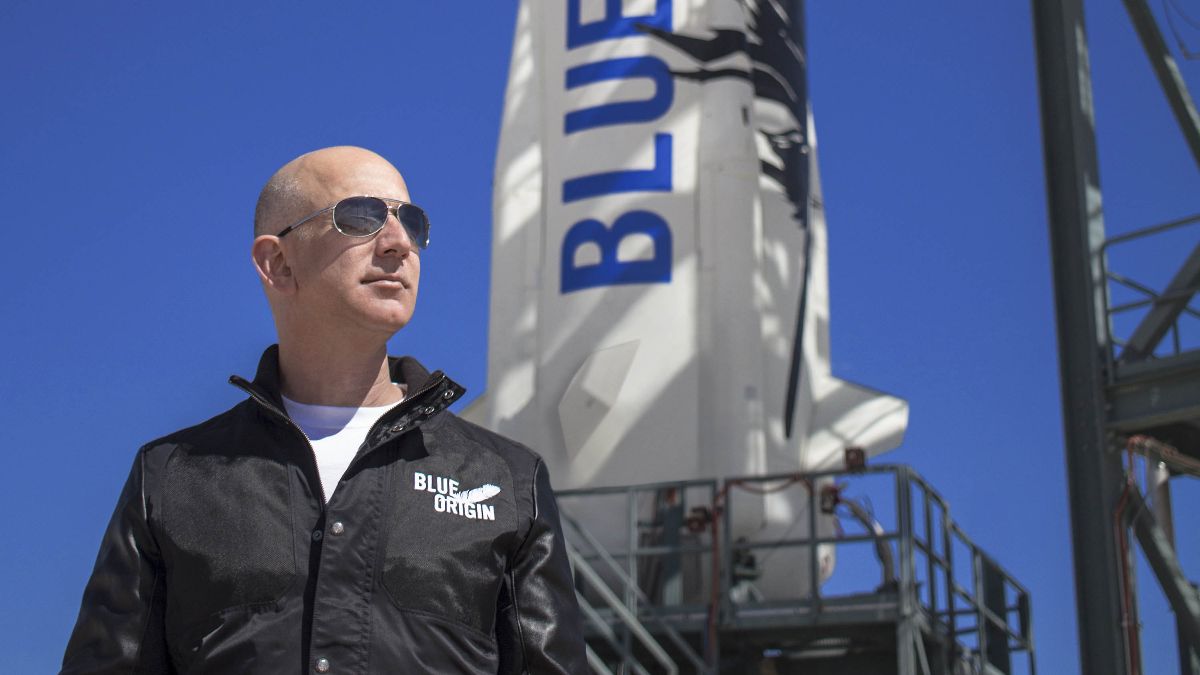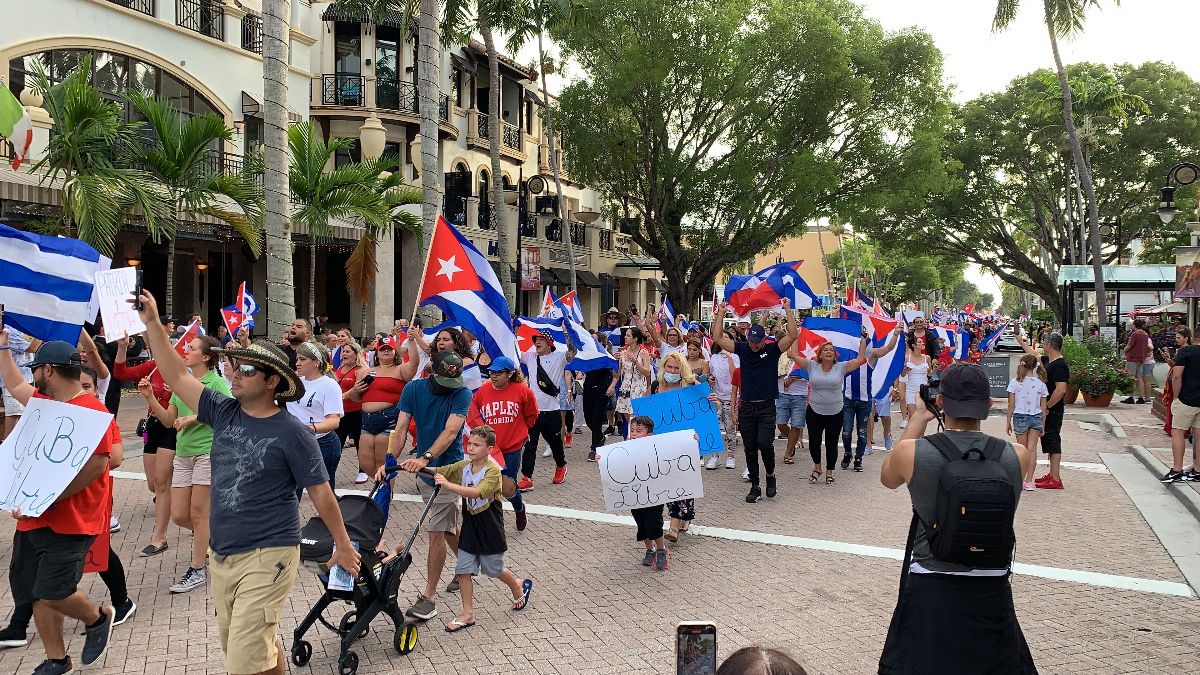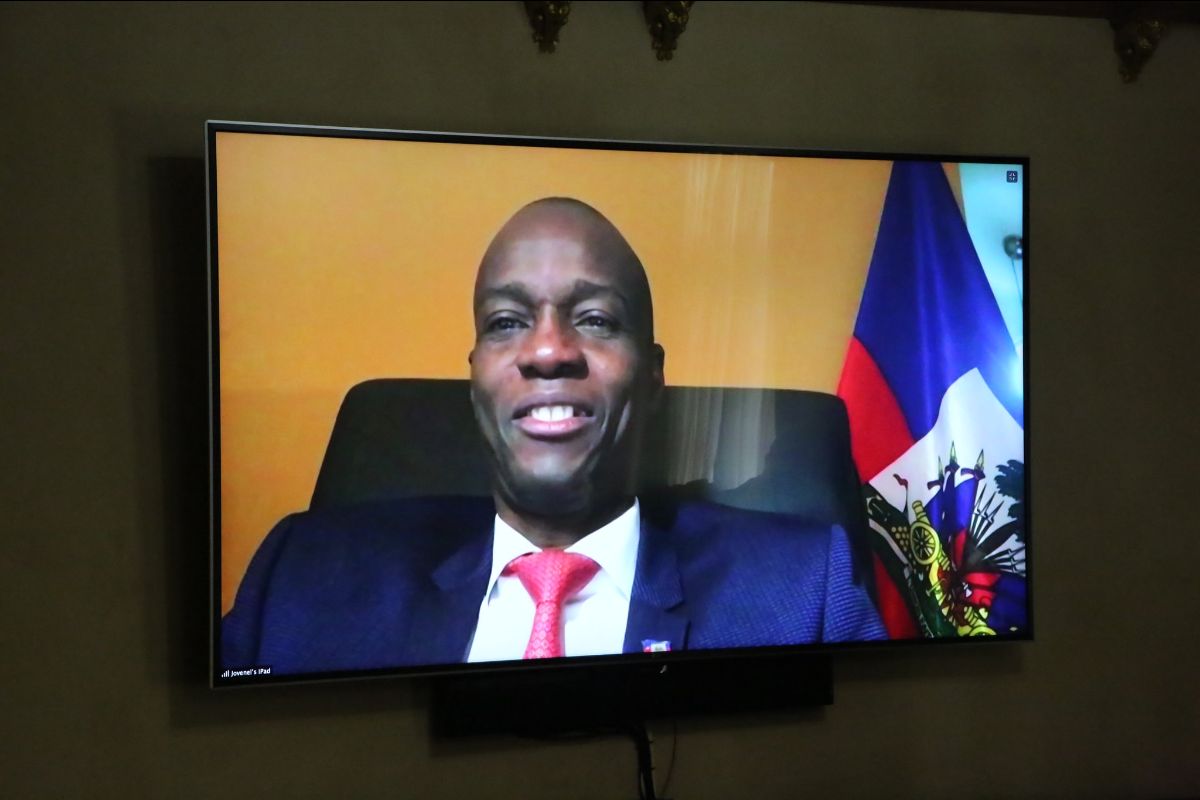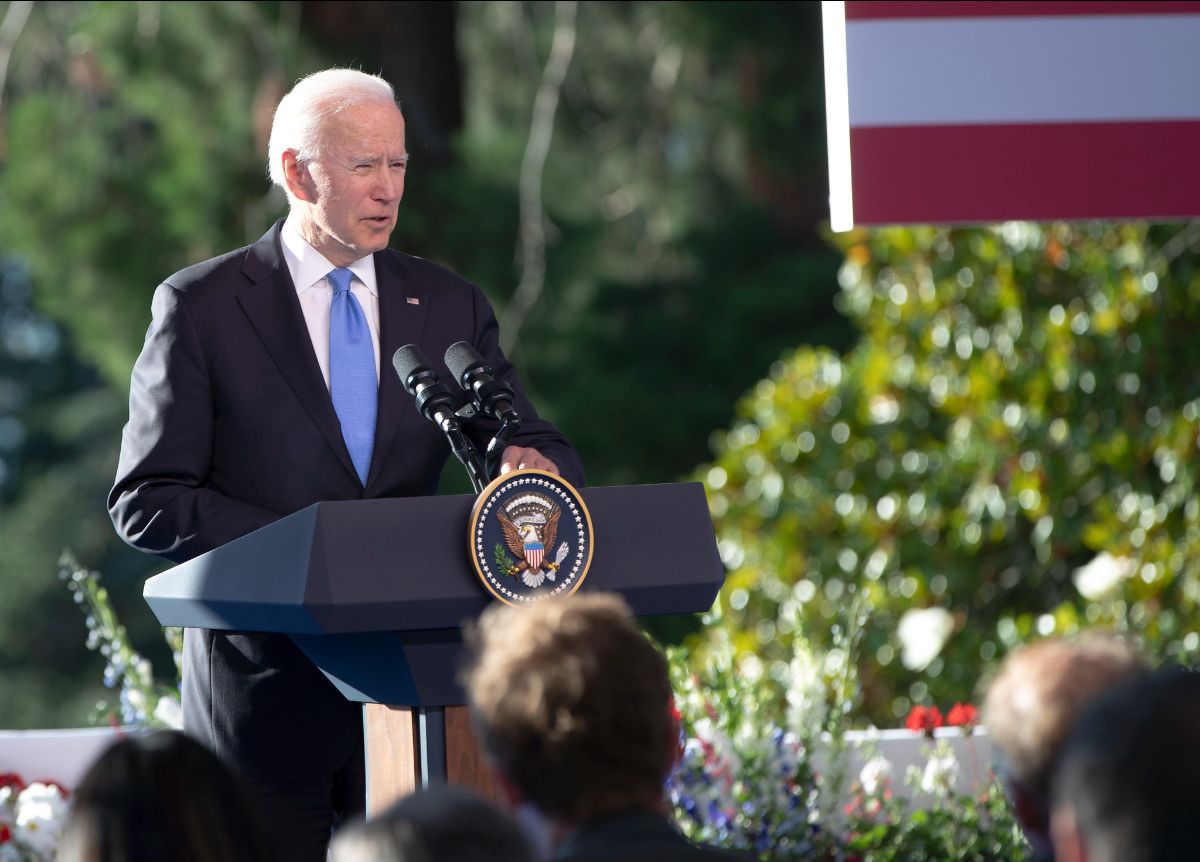Top photo: U.S. President Joe Biden spoke to the press after he and Russian President Vladimir Putin held talks in Geneva, Switzerland, on June 16. (Photo: U.S. Mission Photo / Eric Bridiers)
Welcome to Factal Forecast, a look at the week’s biggest stories and what they mean from the editors at Factal. We publish our forward-looking note each Thursday to help you get a jump-start on the week ahead. If this email was forwarded to you, and you like what you see, you can subscribe for free.
A look ahead:
July 16/ U.S. joint meeting on Russia: The United States and Russia are expected to hold a joint meeting Friday in which the United States will likely pressure Russia over alleged inaction amid rising cases of Russian-based cyber attacks on key U.S. sectors.
- What’s happened so far: The meeting comes in the wake of a massive cyberattack against a Miami-based software maker on July 2. Biden asked Russian President Vladimir Putin to do more to stop cyber criminals in Russia during a call last Friday. Putin had earlier denied that his government was behind the attacks at the Geneva summit in June. At the same meeting, Biden warned of retaliatory measures if Russia did not do more to prevent ransomware groups from attacking U.S. industries and claimed at least 16 U.S. infrastructure facilities had already been hit by Russian-based cyber criminals.
- The impact: Biden has said there would be consequences for Russia’s failure to act. He suggested a U.S. response may come in the form of a digital attack against the alleged criminals. An official also told CNBC that the U.S. response would be taking place “in the days and weeks ahead.”
July 16/ New Zealand to lead meeting on coronavirus: New Zealand Prime Minister Jacinda Ardern on Friday will chair an informal virtual meeting of leaders from economies in the Asia-Pacific Economic Cooperation trade group, which will focus on recovery from the coronavirus pandemic.
- What’s happened so far: More than 50 million coronavirus cases and one million deaths have been recorded within the borders of APEC’s 21 members — which include the United States, China and Japan. Back in June, APEC agreed to review trade barriers and expedite the cross-border transit of coronavirus vaccines and other goods, but stopped short of a broad commitment to lift tariffs.
- The impact: The virtual meeting will be the first time that APEC leaders have held an additional gathering before the group’s formal one in November. The group’s member economies have suffered their biggest contraction since World War II over the past year, making a collective response “vital” to accelerate the region’s economic recovery, according to Ardern.
July 18/ Hajj begins: The annual Islamic pilgrimage to holy sites in western Saudi Arabia starts Sunday with participation restricted to just 60,000 people as the world continues to grapple with coronavirus.
- What’s happened so far: Similar to last year, Saudi Arabia’s Ministry of Hajj and Umrah has barred foreign pilgrims from participating in Hajj due to the pandemic. The number of pilgrims will be much greater than last year, which was capped at just 1,000, but still far below the more than two million Muslims that typically travel to the Saudi cities of Mecca and Medina. Pilgrims are required to be free of chronic diseases and be vaccinated. There will also be one health escort designated for every 20 people to “offer guidance” and enforce precautionary measures.
- The impact: In previous years, Saudi Arabia’s economy earned up to $12 billion from Hajj. With around 97 percent fewer pilgrims than in years past, the country’s economy will certainly suffer. The missing revenue also comes as the country tries to rebound from hits to its economy in 2020.
July 19/ UK eases restrictions: Prime Minister Boris Johnson confirmed England will lift all coronavirus restrictions on Monday despite a rise in infections, while most devolved nations continue to take a more cautious approach.
- What’s happened so far: In spite of a jump in coronavirus cases across the country due to the Delta variant, the UK plans to go ahead with its last phase of reopening, lifting limits on social gatherings and social distancing rules. Guidance to work from home will also be lifted, despite some ministers encouraging people to continue to do so if possible. On Tuesday, Scotland announced it would also ease its restrictions Monday, but face coverings will continue to be mandatory after that date.
- The impact: Johnson’s government has been accused of sending mixed messages about what people are expected to do starting Monday. While the requirement to wear masks will be removed, Johnson said he expects people to continue to wear face coverings in crowded indoor settings, like public transport. Additionally, the government “reserves the right” to make coronavirus certificates mandatory in the future. Scientific advisers are also worried the country is not ready to lift rules yet, warning the move could result in more than 200 deaths-a-day. Meanwhile, Wales and Northern Ireland have refused to follow Johnson’s plan — the Welsh government is expected to lift restrictions on Aug. 7.

July 20/ New Shepard launch: Amazon founder Jeff Bezos is set to take to the skies Tuesday after the FAA granted a license to Blue Origin allowing it to use its New Shepard launch systems to carry humans into space.
- What’s happened so far: In an attempt to beat Bezos to the punch, Virgin Group founder Richard Branson launched from the company’s spaceport in New Mexico on July 11, though Blue Origin alleges he didn’t actually cross the threshold for space. Blue Origin’s launch is set to take place in West Texas and fly past both the level at which NASA and the FAA awards astronaut wings and the Karman line, the internationally recognized line where space begins.
- The impact: Bezos, free from running Amazon on a daily basis, is likely to focus more attention on his space business and a successful launch may see the rivalry between him and SpaceX founder Elon Musk heat up. The two billionaires aren’t just in it for bragging rights, there’s money to be made providing space services and both were locked in a recent battle over NASA’s return to the moon.
July 20/ Colombian Congress resumes: Colombia’s bicameral national legislature will resume Tuesday — roughly a week before the three-month anniversary of the unrest that gripped the country, resulting in hundreds of arrests and dozens of deaths.
- What’s happened so far: Protests in Colombia initially broke out in late April over a plan proposed by President Iván Duque to raise taxes to further fund “Ingreso Solidario,” a social program initiated to provide coronavirus relief. Protests continued despite Duque’s decision to withdraw the tax reform, with grievances expanding to include the heavy-handed crackdown on protesters by Colombian authorities.
- The impact: Officials have confirmed that bills will be filed on Tuesday to raise revenue, though tax reform measures will be less comprehensive than the initial efforts that prompted the protests. This round of measures will seek to generate $15 billion in revenue to fund social programs. Additional legislation concerning Colombia’s social safety net is also expected to be tabled. While protests across the country have continued to varying degrees of intensity, activists announced plans for new marches with the resumption of congress.
July 20/ U.S. fast food workers strike: Fast food workers plan to strike in nine U.S. cities Tuesday to demand a rise of the minimum wage amid a historical workforce shortage in the industry.
- What’s happened so far: Workers plan to protest as part of the strike to demand a minimum wage of $15 per hour. The strike marks 12 years since the last national raise in the sector, when the current minimum wage of $7.25 per hour was set. Similar protests were held earlier this year when employees of McDonalds, Burger King and Wendy’s took to the streets. Franchises like Chipotle and McDonalds have since raised wages in some of their locations, forced by a new trend of fleeing staff shaking the industry, and that could prompt other employers to concede.
- The impact: April registered historical levels of hospitality workers voluntarily quitting their jobs in the United States, with 5.6 percent of the industry’s workforce seeking better opportunities and higher salaries. The current trend of fleeing employees and the Biden administration’s push for improved working conditions could translate into a more favorable climate for negotiations between employers and staff. On the other hand, experts argue that a one-time wage increase will not lead to lasting solutions in the industry.

July 21/ Committee hearing on Capitol riot: A newly-created Democrat-led House committee is expected to convene for the first time as early as Wednesday as it begins an investigation into the Jan. 6 riot at the U.S. Capitol.
- What’s happened so far: House Speaker Nancy Pelosi reportedly informed Democratic colleagues on June 22 that she would seek to create a House committee to investigate the events at the Capitol, after a Senate vote to form a bipartisan commission was blocked by Republicans. The House voted 222 to 190 in favor of the panel, with Republicans Representatives Liz Cheney and Adam Kinzinger voting with the Democrats.
- The impact: The committee is likely to investigate former President Donald Trump’s failure to act to stop the attack and his delayed condemnation of the riot, along with intelligence failings of the FBI and Pentagon. It will have subpoena power. House Minority Leader Kevin McCarthy, R-Calif., has so far declined to recommend Republicans for the panel, although the committee’s chairman Rep. Bennie G. Thompson, D-Miss., said an investigation will progress with or without GOP support.
July 23/ Olympics opening ceremony: The Olympics are set to begin Friday without spectators, as host city Tokyo entered its fourth state of emergency Monday over rising coronavirus cases and concerns about new variants.
- What’s happened so far: Less than a month after easing their third round of coronavirus restrictions, Tokyo was placed under a fresh state of emergency that will last through the duration of the Olympics, until Aug. 22. Vaccination rates are rising in the Tokyo metropolitan area, with around 22 percent of the overall population having received their first vaccination dose. Coronavirus cases, however, are still on the rise in the city, and experts estimate more than 30 percent of current infections are caused by the more contagious Delta variant.
- The impact: The new measures mean spectators will not be allowed to attend Olympic events in and around Tokyo, including the opening ceremony. Most bars, restaurants and karaoke parlors will close early and be barred from serving alcohol. Prime Minister Yoshihide Suga said the government would consider lifting the state of emergency if vaccination rates increase and strain on the medical system eases, but health experts warned the Olympics may trigger a surge in infections.

What else matters:
Cuba protests: A spiraling crisis caused by coronavirus, a lack of necessities such as food and medicine and frequent blackouts have led to Cuba’s largest anti-government protests in decades. Thousands took to the streets spontaneously Sunday singing anti-Castro songs and chanting “down with communism.” President Miguel Díaz-Canel blamed American sanctions and the trade embargo for the situation. He also said the protesters were manipulated by American-led social media campaigns and urged his supporters to confront provocateurs. President Biden said the United States stands firmly with the protesters and called on the regime to “hear their people and serve their needs” rather than enrich themselves.
- Watch for: The Cuban government may start to crack down on protests with more violence than has been seen so far. If that happens, history may repeat itself from the last time Cuba saw protests this large. In 1994, tens of thousands of Cubans tried to flee the country on rafts and small boats. It led then-President Bill Clinton to install the “wet foot, dry foot” policy. If the recent protests escalate, more Cubans could attempt the trip to South Florida.
South Africa protests: More than 70 people have been killed across South Africa, and at least 1,200 others arrested since the start of protests and looting sparked by the imprisonment of former President Jacob Zuma for contempt of court earlier this month. The violence, so far, has been focused in the provinces of KwaZulu-Natal and Gauteng. In announcing he would deploy the military to restore order, President Cyril Ramaphosa framed the unrest — widely considered to be the worst the country has seen in years — as “opportunistic acts of criminality.”
- Watch for: The county’s high court heard an appeal from Zuma on Monday to have his sentence rescinded, but, as of Tuesday evening, no decision had been announced. Though Zuma’s detention may have set off the latest wave of protest violence, residents have grown increasingly frustrated with the country hit hard by a third wave of coronavirus cases, with pandemic-related restrictions worsening poverty and unemployment rates, the latter north of 30 percent. While the country’s defense minister said a state of emergency would be declared “should the need arise,” officials have thus far declined to take that step.

(Photo: Gobierno Danilo Medina / Flickr)
Haiti president assassination: The consequences of last week’s assassination of Haitian President Jovenel Moïse are still being felt worldwide with more details of the international plot unearthed. Moïse’s term as president began with controversy amid allegations of voter fraud, a trend that continued throughout his time in office. That contributed more instability to the already notoriously unstable country. Following the overnight shooting at his home in Pétion-Ville, police eventually captured and killed several alleged perpetrators. Police have said many of the attackers were Colombian nationals whose motive seems to have been money. Officials are also questioning Moïse’s security detail, after it became clear that none of them were injured or killed in the attack.
- Watch for: Haitian police are currently seeking five more fugitives they believe are connected to the attack. Interim Prime Minister Claude Joseph has asked the United Nations and the United States to deploy peacekeeping troops until the situation is stabilized. If the United States were to send troops, it risks becoming a long-term situation just weeks after pulling out of Afghanistan. On the other hand, if things spiral, refugees may try to leave the country and head to the states.
Extended outlook: What’s on our radar in the coming weeks
July 16: Bank of Japan meeting; U.S. joint meeting on Russia; New Zealand chairs coronavirus meeting
July 18: Hajj begins
July 19: International travel could resume in Ireland; England lifts most coronavirus restrictions
July 20: Planned launch of first crewed flight aboard Blue Origin’s New Shepard; U.S. fast food workers plan strike; Colombia Congress resumes
July 21: First hearing of U.S. House select committee on Capitol riot possible
July 22: European Central Bank monetary policy meeting in Frankfurt
July 23: Tokyo Summer Games begin
July 25: Azad Kashmir holds general election; local elections in Kazakhstan
July 26: Expected end of trial for deposed Myanmar leader Aung San Suu Kyi; St. Lucian general election
July 27: Runoff election for Texas’ 6th congressional district
July 28: Pedro Castillo to be sworn in as president of Peru
July 30: Planned launch of Boeing Starliner Spacecraft 2
Aug. 1: U.S. federal debt ceiling to go back into effect without legislative action
Aug. 2: 54th ASEAN Foreign Ministers’ Meeting
Aug. 3: Special election primaries for Ohio’s 11th and 15th congressional districts; National Night Out in the U.S. against crime; mayoral primary elections in Detroit and Seattle

